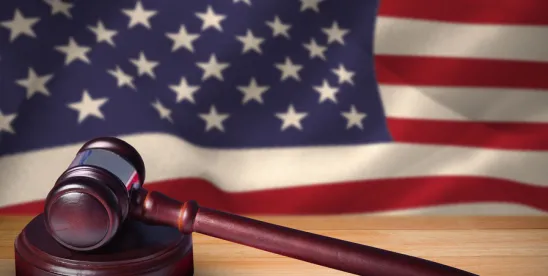Price gouging enforcement and litigation is front and center for company counsel and business managers nationwide. Our weekly round up highlights some of the most relevant news and information to our clients and friends.
North Carolina AG Advises Public on Price Gouging During Hurricane Emergencies
North Carolina Attorney General Josh Stein recently advised the public to adjust their hurricane emergency plans as necessary to account for disruptions caused by the pandemic. While the state price gouging law applies to emergencies like hurricanes, Attorney General Stein reminded residents that the state’s price gouging law is already in effect due to the ongoing pandemic. He also noted that after Hurricanes Michael and Florence in 2018, his office brought seven lawsuits against 22 parties under the state’s price gouging law, resulting in over $725,000 in judgments. The attorney general’s office affirmed that they remain “committed to holding price gougers accountable,” and directs the public to report price gouging concerns by phone or by submitting a complaint online.
Another Pennsylvania Pharmacy Fined for Price Gouging Masks
On July 13, 2020, Pennsylvania Attorney General Josh Shapiro announced that a pharmacy in Levittown has entered into an Assurance of Voluntary Compliance and will pay $1,500 in civil penalties, plus costs and restitution, following a price gouging investigation. According to Attorney General Shapiro, the pharmacy sold N95 respirator facemasks for $20 each. Those sales violated the state price gouging law as the prices were in excess of 20% of the average price at which the same or similar products had been obtainable in the affected area seven days prior to March 6, 2020. “We won’t tolerate illegal price gouging during this emergency, and we’re taking action every day to stop it—here in Levittown and across Pennsylvania,” Attorney General Shapiro said, adding that, “[y]ou have a right in Pennsylvania to purchase life-saving goods at reasonable prices in times like these.”
Connecticut Town’s Nonresident Beach Pass Pricing May Not Violate State Price Gouging Law
Pricing for beach passes in the town of East Lyme, Connecticut has raised price gouging concerns, as the town is selling daily beach passes for the same price as season passes. Season beach passes are priced at $40 each and are available for purchase only to the town’s residents. Nonresidents are only able to purchase day passes, which cost $40 on weekdays and $50 on weekends. When contacted about the possibility that East Lyme is price gouging on beach passes, however, a spokesman for Connecticut Attorney General William Tong suggested that the situation is not covered by Connecticut’s price gouging statute, as it applies only to a “person, firm or corporation,” and not to a town.
Uber Eats Charging $3 Customer Surcharge for Portland Restaurant Deliveries
Uber Eats has instituted a $3 surcharge for customers ordering from restaurants in Portland, Oregon responding to restrictions imposed by a recent City of Portland ordinance. On July 8, the Portland City Council voted unanimously to limit the commission fees third-party food delivery services can charge restaurants. Those fees are now capped at 10 percent for deliveries made by the third-party services, and five percent for orders that are picked up by customers or delivered directly by the restaurants. The ordinance, which will remain effective until 90 days after the city’s state of emergency order is lifted, also prohibits food delivery services from reducing their payments to delivery workers in order to recoup the money lost due to the new limits. While we have previously written about caps on third-party food delivery fees and about surcharges more generally, this particular surcharge appears to be new. At the time of publication, Portland is the only city where Uber Eats imposes such a fee, though it had imposed a similar fee in Jersey City, New Jersey during the period that the city had similarly capped commission fees at 10 percent.
Colorado Governor Signs Price Gouging Bill into Law
On July 14, 2020, Colorado Governor Jared Polis signed House Bill 20-1414, “Price Gouge Amid Disaster Deceptive Trade Practice,” into law. The law prohibits the selling of certain goods at “excessive” prices for 180 days after the state governor declares a disaster emergency or the President declares a national emergency. There was previously no price gouging regulation in effect in Colorado. The state remains in a state of emergency through July 19, 2020, unless that order is rescinded or extended, based on the Governor’s March 11, 2020 order. During a state of emergency, this new regulation applies to the sale of consumer food items, emergency supplies, building materials, and fuel, among other necessities. It also applies to the provision of some services, including transportation and storage services, and services used in emergency cleanups. While sellers may not sell these goods or services at “price[s] so excessive as to amount to price gouging,” a price will not be regarded as impermissibly excessive if the seller can prove that the price is “directly attributable” to the costs of providing the good or service, or to additional costs imposed by supplier(s). The law provides that though pricing is typically best left to the marketplace, when disasters disrupt the market “the public interest requires that any unfair and unconscionable increase in the price of consumer goods or services be discouraged.”







 />i
/>i

